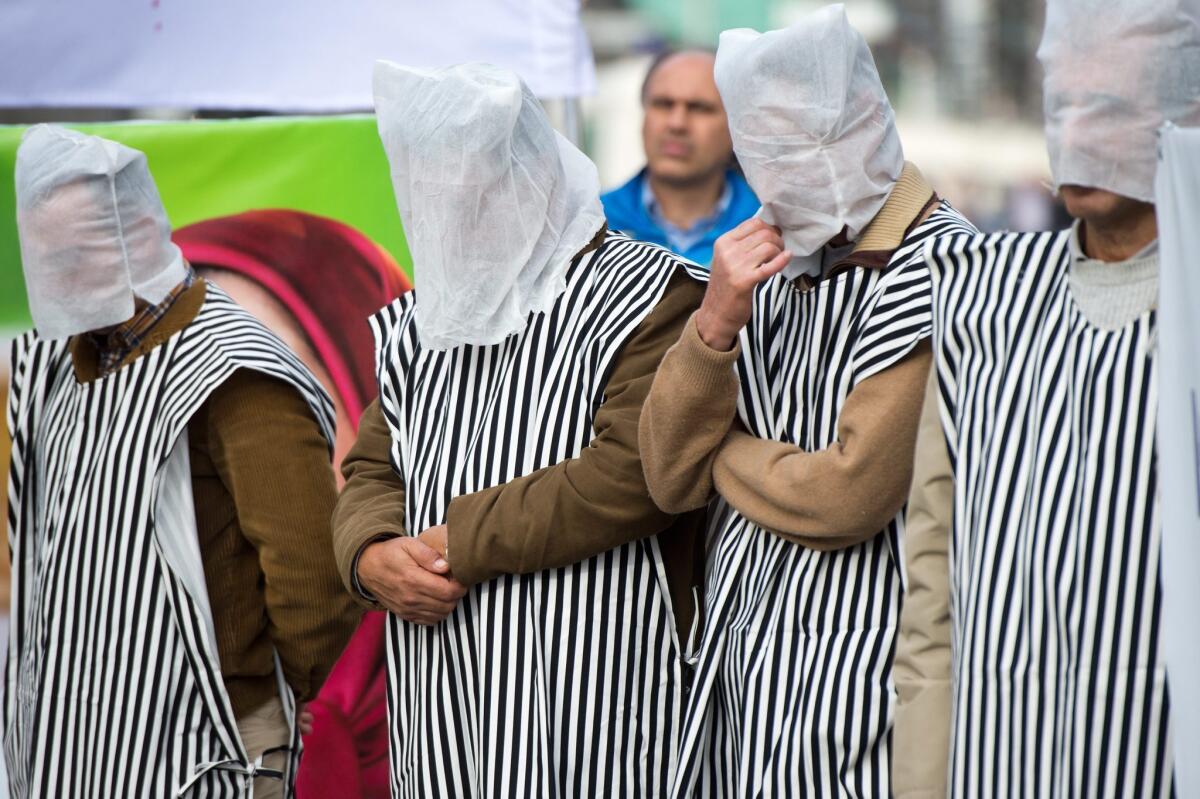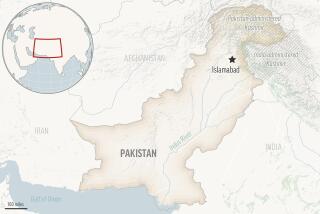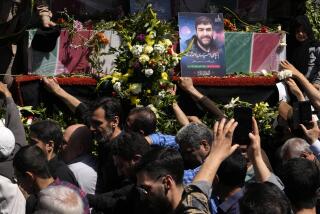Iran hangs 16 prisoners one day after 14 border guards are killed

- Share via
TEHRAN — Iran hanged 16 prisoners on Saturday in apparent retaliation for the killing a day earlier of 14 border guards in an ambush along the nation’s rugged southeast frontier with Pakistan, Iranian news agencies reported.
The condemned prisoners were linked to groups “hostile to the system,” said the semi-official Fars News agency.
The hangings were “in response” to the killing on Friday of the border guards during a cross-border ambush in Saravan township in southeastern Sistan-Baluchistan province, Fars reported.
It was unclear if the hanged suspects were directly connected to any group involved in the fatal attack on the border guards. The 16 were reportedly executed in a prison in Zahedan, northeast of Saravan.
Iranian officials did not confirm reports that a group called Jaish al-Adl (Army of Justice) had claimed responsibility for the killing of the 14 border personnel.
Iran’s deputy interior minister, Ali Abdollahi, was quoted in media reports calling the attack a “terrorist operation” organized outside of Iran. The attackers reportedly entered from Pakistan and fled back there following the ambush. There was no official word on casualties among the assailants.
Various Iranian officials called on Pakistan to tighten control of its frontier areas in the aftermath of the attack. President Hassan Rouhani and other top authorities vowed to investigate.
The border officers were killed along a largely lawless and often violent stretch of frontier that is traversed by both rebels and smugglers, including drug traffickers.
What prompted the attack on the border guards was not clear. But Sistan-Baluchistan province is home to a restless Baluchi ethnic minority whose members often complain of official discrimination in both Iran and in neighboring Pakistan, which is also home to a sizable Baluchi population. The Baluchi are mostly Sunni Muslims, a minority in Iran, where Shiite Islam is the dominant sect.
At least one Sunni insurgent group is said to be operating in southeast Iran. Iranian officials have accused the West and Israel of sponsoring Jundullah [the Soldiers of God], an Islamist Sunni rebel organization that has been linked to a number of attacks against Iranian government targets. Iran labels Jundullah a terrorist group.
Whether Jundullah was suspected of involvement in the killing of the 14 border guards was not clear.
Some reports indicated that the 16 executed prisoners were members of the large Rigi clan, which is close to Jundullah.
The ex-leader of Jundullah, Abdolmalek Rigi, was hanged in 2010 after making a televised confession saying U.S. officials had promised to help his group. It was never clear if Rigi made the confession freely or under duress.
ALSO:
Mexico: Fatal explosion at candy factory in Ciudad Juarez
Egyptian comic praised by Jon Stewart goes back into the fray
Two Americans taken hostage by pirates off the coast of Nigeria[email protected]
Mostaghim is a special correspondent. Times staff writer McDonnell reported from Gaziantep, Turkey.
More to Read
Sign up for Essential California
The most important California stories and recommendations in your inbox every morning.
You may occasionally receive promotional content from the Los Angeles Times.










